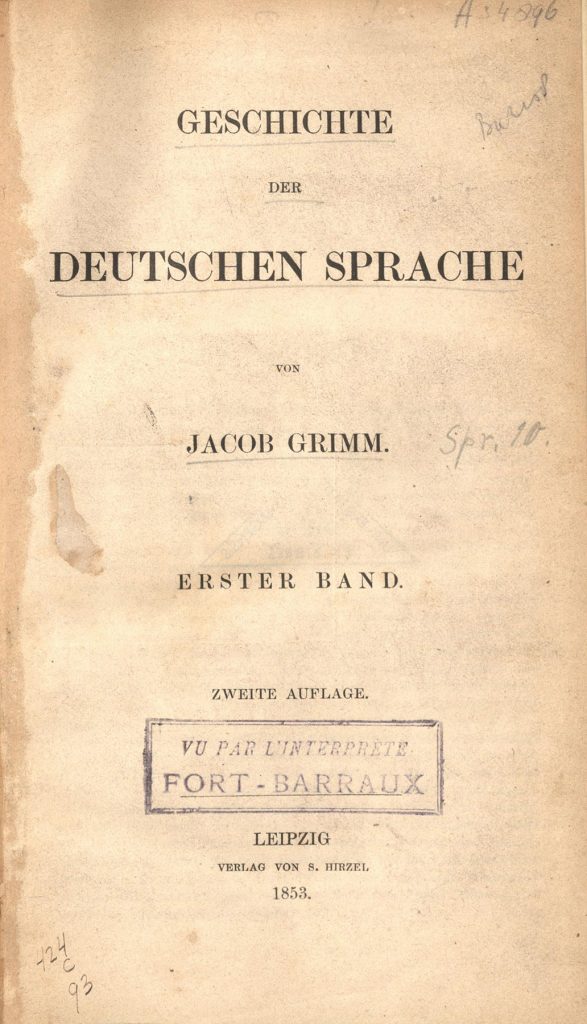
Language and law evolve through time as they adapt to societal changes. There is merit in tracing the evolution of law and language together in order to fully understand their meaning and scope. Jacob Grimm probably would have subscribed to the idea that an inadequate use of language can result in a dissociation of law from a society. Language is a fundamental means to convey the message of the law, and to shape the law.
As the title indicates, Geschichte der Deutschen Sprache offers a history of the German language. This work, first published in 1848, was mainly historical. Its content is in many ways the result of the earlier philological exercises undertaken by Jacob Grimm, an example of which may be seen in Jacob Grimm’s work on the Deutsches Wörterbuch.
Geschichte der Deutschen Sprache was very influential. It successfully traced the primitive development of the German language by studying the interactions between early Germanic groups. History was a very familiar topic for Jacob Grimm, steeped as he was in the tenets of the Historical School of legal science. Philology, in particular, offered Jacob a forum in which to engage in historical research.